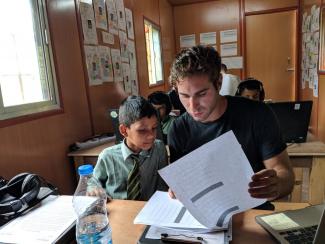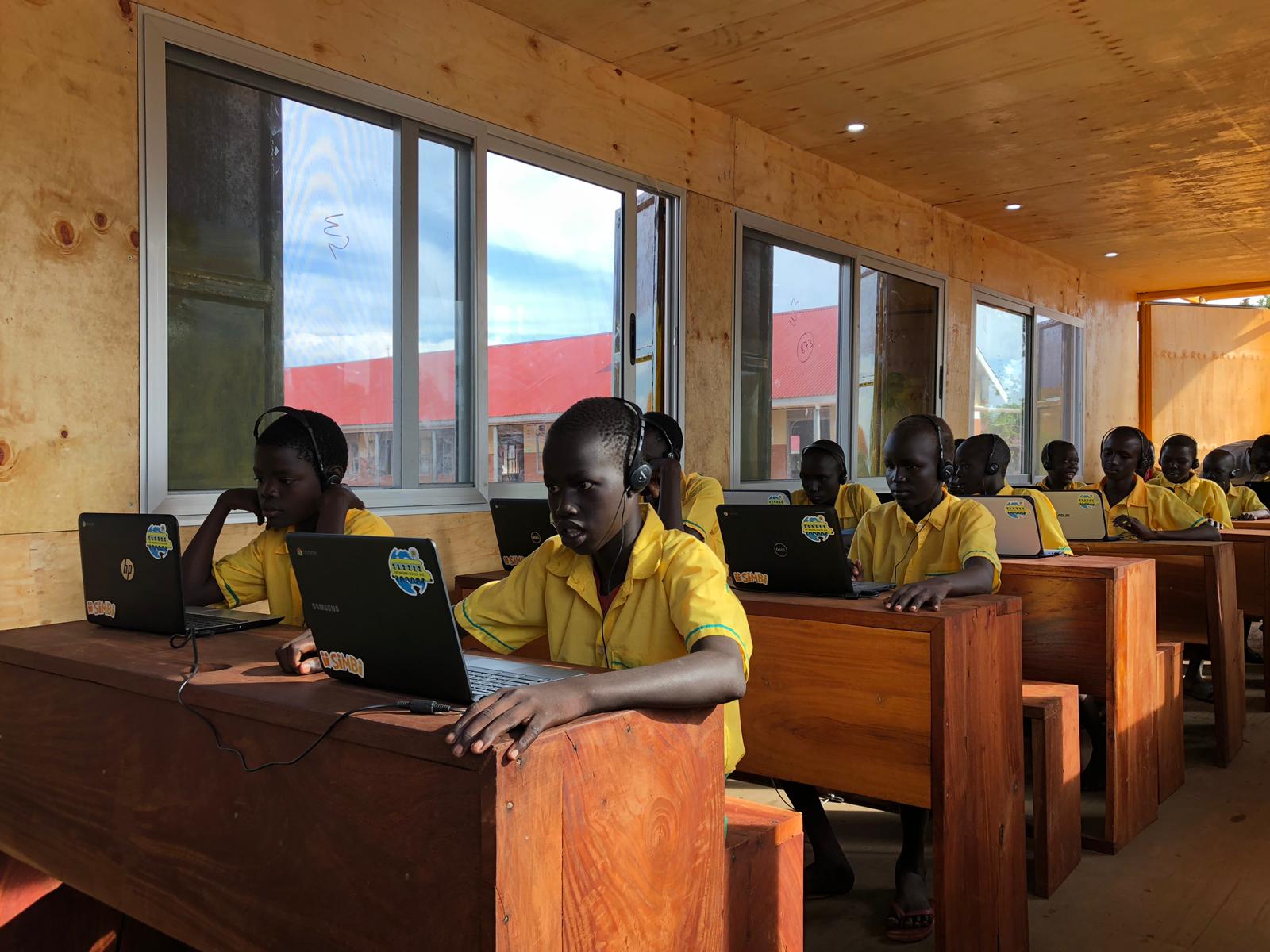Simbi's Global Impact Makes Reading Meaningful

Read for good: A simple, yet impactful mission that has led founders Aaron Friedland and Alex Gillis to help over 45,000 learners improve their literacy across 5,000 schools in 54 countries. How? Through Simbi, an online platform empowering users to read along and read aloud, boosting global literacy. Recently, the team has been innovating on their own model, working with Holocaust survivors and various Indigenous communities around British Columbia to help capture and preserve languages and stories on the brink of extinction, compounding both the application and global impact of their technology.
Simbi was born through Aaron’s research as a graduate student at UBC. Having dyslexia, Aaron struggled to learn how to read growing up. He ended up learning by simultaneously reading a book and listening to the audio narration, an approach he felt could be applied to the rural Ugandan communities he was working with during his graduate studies as part of his non profit foundation, The Walking School Bus (TWSB). Driven by research and focused around economic development, TWSB provides students access to curriculum resources and solar powered infrastructure to further their education and likelihood of academic success. It was through this work Aaron recognized the opportunity to develop technology specifically designed to help students learn how to read, mirroring how he learned as a child.
Aaron built an early prototype of Simbi’s technology, working with narrators in Vancouver and readers in Uganda to test his theory. He quickly realized the students were becoming significantly better readers through this method. Shortly thereafter, Simbi beat out 3,500 other ideas to win the “Next Einstein Competition” where Aaron was presented $10,000 seed money by Anderson Cooper (yes, the CNN Anderson Cooper), launching Simbi into the startup sphere.
This recognition urged Aaron and his colleague Stephanie Mrkaovich to take Simbi to the next level with entrepreneurship@UBC’s Social Venture Incubator program. Aaron cites the program as:
“..the most profound, groundbreaking exposure I received to scientifically validating or invalidating a business idea…we came from academia, not business.”
It was around this time that Aaron was introduced to Alex Gillis, his now co-founder, Chief Revenue Officer and Head of Educator Success. Alex had just finished his first year at UBC Sauder and shared Aaron’s struggle with functional illiteracy as a child. The two immediately hit it off and it became clear that the not-for-profit business model adopted from TWSB wasn’t suited for Simbi, the technology was simply too expensive to scale. This is how their current model was generated: Simbi grounds itself in a social enterprise, for-profit model while giving back ⅓ of their revenue to support their schools abroad. To this day, Simbi remains the only tech education company working through this model of engagement and support, with The Walking School Bus transitioning its name into the Simbi Foundation recently in May.

Over the last several years, Simbi has grown to partner with schools around the world to support their learners abroad through their Simbi Partner School Program. In 2019, Simbi entered into a collaboration with the United Nations High Commissioner for Refugees to improve the literacy landscape for the 400,000+ refugees in Bidibidi and Nakivale, Uganda. In April 2020, they co-hosted the World Literacy Summit with Oxford University and the World Literacy Foundation, virtually, to an audience of more than 1,000, as part of their ongoing quest to eradicate illiteracy.
Beyond these milestones, Simbi has branched out to multiply the impact of their technology to help capture history and protect language. The team is working with Holocaust Survivors who are narrating their biographies and memoirs from the comforts of their homes, using Simbi to record and share their stories. Within the next 15-20 years, there won’t be any Holocaust survivors alive: Simbi is forever safeguarding their unique stories, accents and experiences to ensure their voices will be heard globally for years to come.
In addition, Simbi has developed partnerships with various Indigenous communities around British Columbia, working with community elders to preserve and revitalize critically endangered languages - some of which only a handful or so people today can fluently speak. It is estimated that close to half of the world’s 7,000 languages will be extinct by the end of the century. The impact and application of their technology can not be understated: culture, history and knowledge live inside of language. Simbi is not only a mechanism to archive these languages and dialects, but is facilitating learning to future generations and readers around the world, today.
Simbi is an alumni of entrepreneurship@UBC's Social Venture Incubator Program
Want to learn more about Simbi?
Discover more about Simbi and their impact, here
Sign up as a narrator to help learners read along online all over the world, here
Read along to a snippet from Holocaust Survivor Alex Buckman’s Memoir “Afraid of the Dark,” here
About entrepreneurship@UBC
entrepreneurship@UBC propels UBC innovations out into the world through venture creation, providing UBC students, researchers, faculty members, alumni and staff with the resources, networks, and funding they need to succeed.